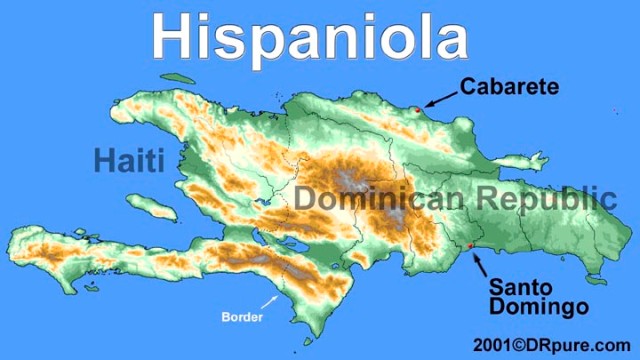
The Collective Preventive Services (CPS) which is part of the Ministry of Public Health, says its travel advisory to Hispanola (Haiti, Dominican Republic) remains in force due to the cholera outbreak which has claimed a total of 4,664 persons (3,889 deaths in mid-January) in Haiti. The cumulative number of cholera cases in Haiti stands at 251,043 (194,095 mid-January) according to the Pan American Health Organization (PAHO) with respect to Haiti.
All departments recorded new cholera cases with five (Grand Anse, Nord Est, Nord Quest, Sud Este y Nord) reporting an increase in the weekly incidence rate. In the other five departments a decrease in the weekly incidence rate was observed.
The Ministry of Health of the Dominican Republic reported a total of 568 laboratory confirmed cases of cholera (191 in 2010 and 377 in 2011), including six fatal cases since the beginning of the outbreak up to the first week of March.
Since the beginning of the outbreak in the last quarter of 2010, there have been cholera-related cases and hospitalizations registered in 25 out of the 31 provinces of the Dominican Republic. The provinces that reported cases during the previous two weeks were San Cristobal, Santiago, Santo Domingo y el Distrito Nacional.
Persons who plan to travel to Hispanola are advised to take preventive measures. Ensure taking vital precautions such as hygienic food preparation, boiling or purifying all water, and washing hands often with soap and clean water.
The CPS continues to monitor the cholera situation with the assistance of the family physicians and its weekly syndromic surveillance system.
Family physicians are requested to be on alert and report any cholera symptoms to CPS to ensure proper case management or follow up according to WHO International Health Regulations.
Symptoms can occur within 24 to 48 hours of being infected with the cholera causing bacteria. Cholera symptoms are generally mild; they include diarrhea, vomiting, and muscle cramps. About one infected person out of 20 has severe signs and symptoms, such as increased heart rate, dehydration, and shock. Consult your physician if you have travelled and have symptoms.
Cholera is on the list of diseases under surveillance according to the International Health Regulations. It is one of the diseases that are required for immediate reporting by physicians even if it is suspected.
Cholera is a bacterial infection spread through contaminated water. It causes severe diarrhea and vomiting that can lead to dehydration and death within hours.
About 75 per cent of people infected with cholera do not develop any symptoms, although the bacteria are present in their feces for seven to 14 days after infection and are shed back into the environment, potentially infecting other people.
Cholera is transmitted through fecal contamination of water and food. In places where there is infrastructure damage, the lack of safe drinking water and poor sanitation and hygiene can increase the risk of cholera, as well as numerous other diarrhea diseases.
Cholera is easily treatable, and if patients are given oral re-hydration salts promptly to replace lost fluids, and they can nearly always be cured.
In a small percentage of people, cholera can cause very severe dehydration potentially leading to death. To minimize the number of people infected, frequent hand washing, personal hygiene, safe water use and food preparation are a necessity.
By taking a few basic precautions, cholera as well as most other food and water-borne diseases can easily be prevented. The main rule is, always be aware of the quality of what you eat and drink when you are in Hispanola.

